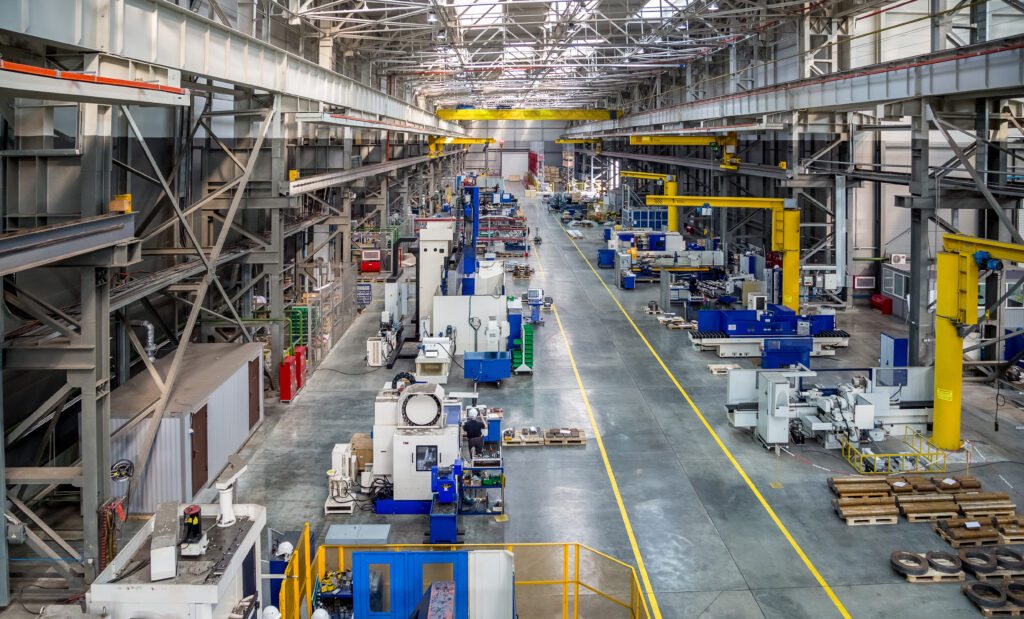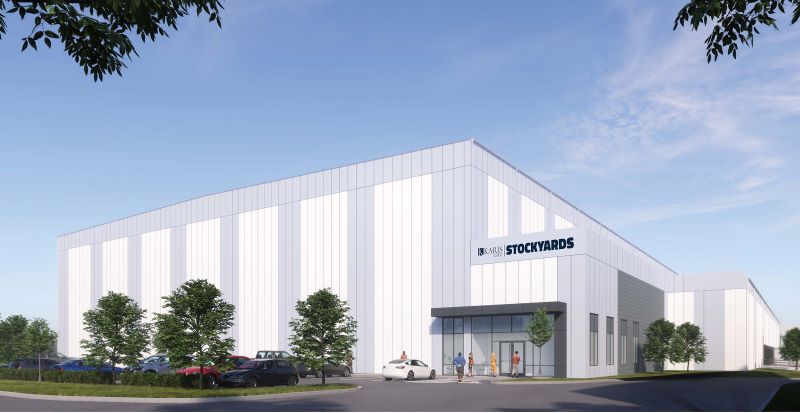May 2025
Reshoring Is Real — And Chicago Is Ready

By: Nick Schlanger, Director of Research Services
For years, “reshoring” felt like a buzzword. But in 2025, it’s much more than a talking point — it’s a full-blown transformation of the U.S. industrial landscape, and Chicago is emerging as one of the biggest beneficiaries. In a recent interview with Bisnow, I explored how tariffs and supply chain volatility are driving this shift—and why Chicago is so well positioned to lead it.
From global instability to evolving supply chain priorities, a perfect storm of factors is accelerating the return of manufacturing to U.S. soil. Companies aren’t just reacting to short-term risks — they’re actively rethinking how and where things are made. That’s pushing demand into markets that offer connectivity, utility infrastructure, workforce depth, and long-term resilience. Chicago checks every box.

Why Reshoring Is Accelerating
Manufacturers are reorienting toward supply chain control, speed-to-market, and operational stability. Ongoing global tensions — from the Red Sea to the Taiwan Strait — have made offshore production less dependable and more expensive. Tariffs are compounding that cost pressure, especially in sectors like electronics, machinery, and auto parts.
But reshoring isn’t just about avoiding risk. It’s a strategic bet on long-term competitiveness. Federal incentives, such as the CHIPS Act and Inflation Reduction Act, are driving investment in domestic semiconductor and clean energy production, while defense and medical manufacturers are focusing on securing their U.S. operations.
According to the 2024 State of North American Manufacturing Report by Thomas, 96% of CEOs have considered or initiated reshoring plans. Roughly 69% of manufacturers have already begun reshoring — with 94% of them reporting success.
Chicago’s Reshoring Advantage
So where do these reshoring efforts land? Increasingly, the answer is Chicago.
With its central location, deep labor pool, and unmatched infrastructure, Chicago offers one of the most strategic platforms for domestic manufacturing and distribution:
• Connectivity: Six Class I railroads, multiple interstates, and two major airports.
• Water & Power: The Great Lakes ensure a stable water supply, and Illinois offers one of the country’s most robust energy infrastructures.
• Climate Resilience: Chicago faces fewer natural disasters than coastal or southern peers, making it more attractive for companies prioritizing uptime.
• Workforce Depth: The region boasts the third-largest manufacturing workforce in the U.S., supported by workforce development programs, trade schools, and a growing tech presence.
We’re already seeing movement. Flextronics and Uline signed major leases in Q1 2025, with notable growth in the biomedical and packaging sectors. Across the board, tenants are looking for space that can support advanced manufacturing, high energy usage, and faster product turnaround.
Industrial Market Outlook: A Measured but Strong Cycle
Chicago’s industrial market is coming off a record-setting stretch — and settling into a more sustainable growth cycle. According to Hiffman’s Q1 2025 industrial market report, in Q1 2025, the region saw 3.5 million square feet of net absorption, with vacancy holding at a healthy 5.9%. While new supply has outpaced absorption in recent quarters, speculative construction has slowed dramatically — now just 34% of projects underway are spec builds, compared to 80% just two years ago.
This shift reflects increased discipline and signals a healthier balance ahead. Developers are prioritizing build-to-suit and pre-leased projects. And with Amazon ramping up its industrial leasing again — including recent million-square-foot commitments in Kenosha and Merrillville — competition for top-tier facilities is expected to tighten. This momentum is further supported by the return of major occupiers like Amazon, which recently ramped up its industrial leasing nationwide — a trend we explored in detail here.

Chicago Is Built for the Next Industrial Chapter
As manufacturers redraw the supply chain map, the Midwest — and especially Chicago — stands to gain. Our region combines affordability with scale, talent with infrastructure, and resilience with accessibility. With more than 1 billion square feet of industrial space, a $700B+ economy, and a top-three ranking in corporate relocations, Chicago continues to prove why it’s the Midwest’s industrial engine.
Reshoring is real. And Chicago is ready.
About NAI Hiffman:
NAI Hiffman is one of the largest independent commercial real estate services firms in the US, with a primary focus on metropolitan Chicago, and part of the NAI Global network. We provide institutional and private leasing, property management, tenant representation, capital markets, project services, research, and marketing services for owners and occupiers of commercial real estate. To meet our clients’ growing needs outside of our exclusive NAI Hiffman territory, we launched Hiffman National, our dedicated property solutions division, which provides property management, project services, and property accounting services across the country. NAI Hiffman | Hiffman National is an award winning company headquartered in suburban Chicago, with more than 275 employees strategically located throughout North America.
About Hiffman National:
Hiffman National is one of the US’s largest independent commercial real estate property management firms, providing institutional and private clients exceptional customized solutions for property management, project management, property accounting, lease administration, marketing, and research. The firm’s comprehensive property management platform and attentive approach to service contribute to successful life-long relationships and client satisfaction. As a nationally bestowed Top Workplace, and recognized CRE award winner, Hiffman National is headquartered in suburban Chicago, with more than 275 employees nationally and an additional six hub locations and 25 satellite offices across North America.


